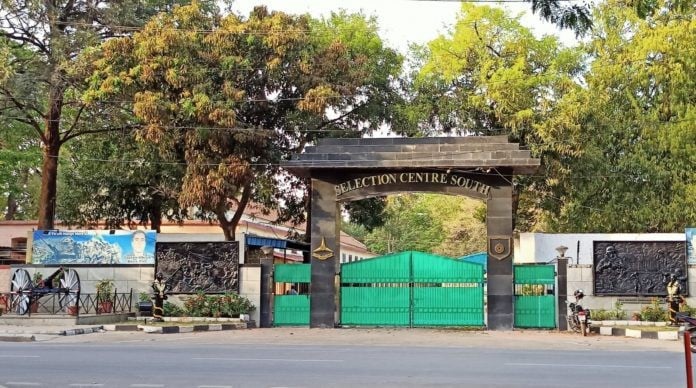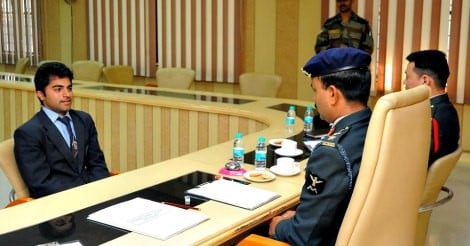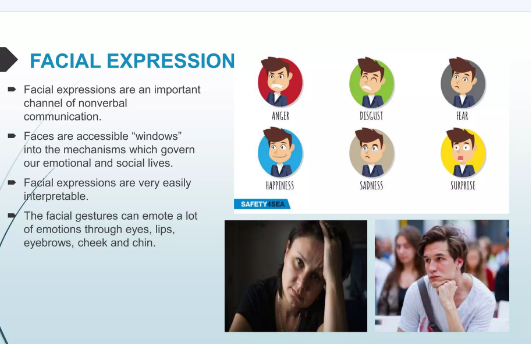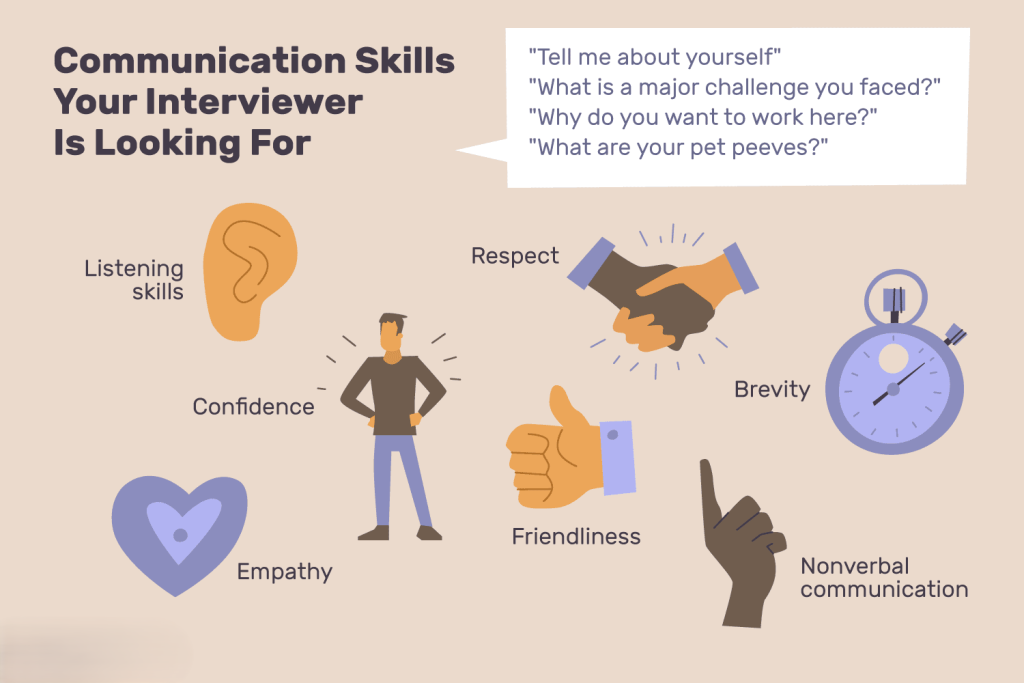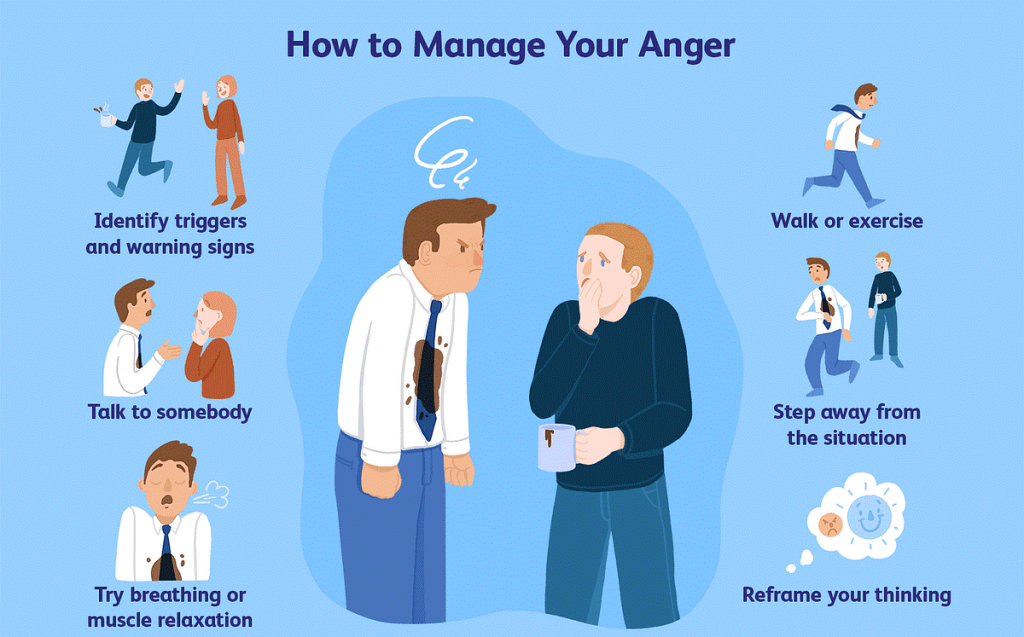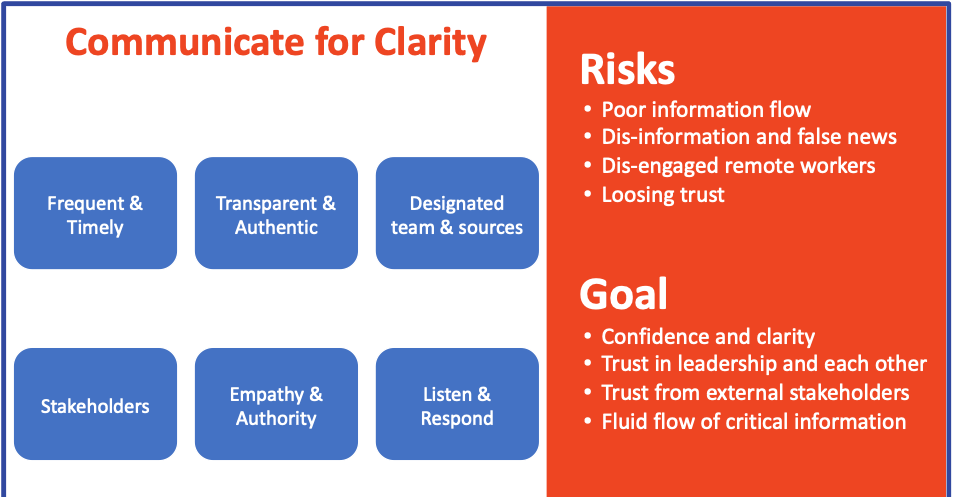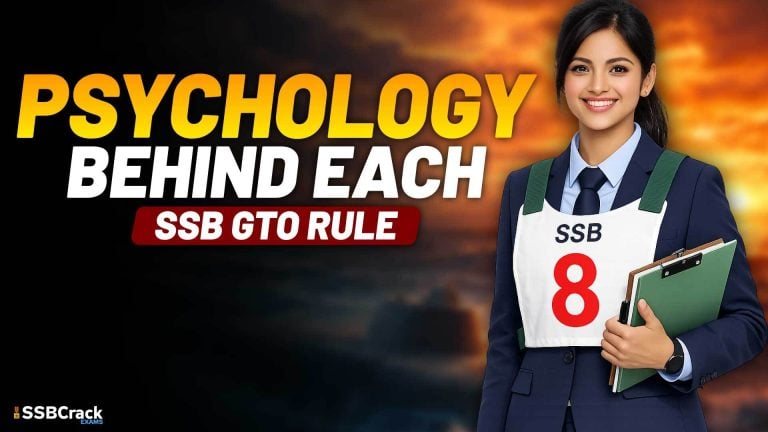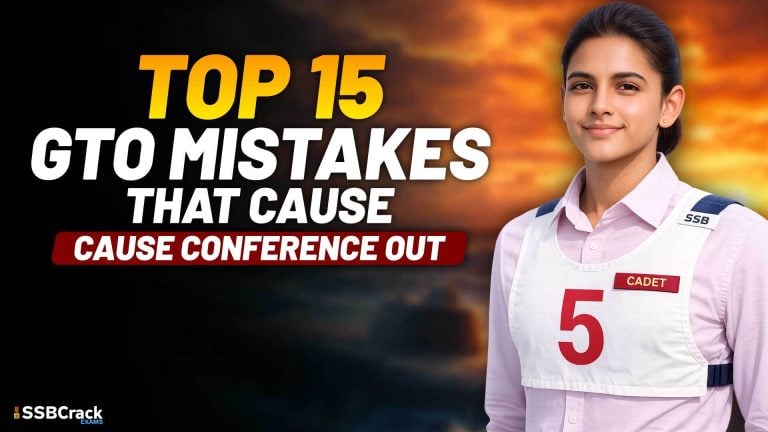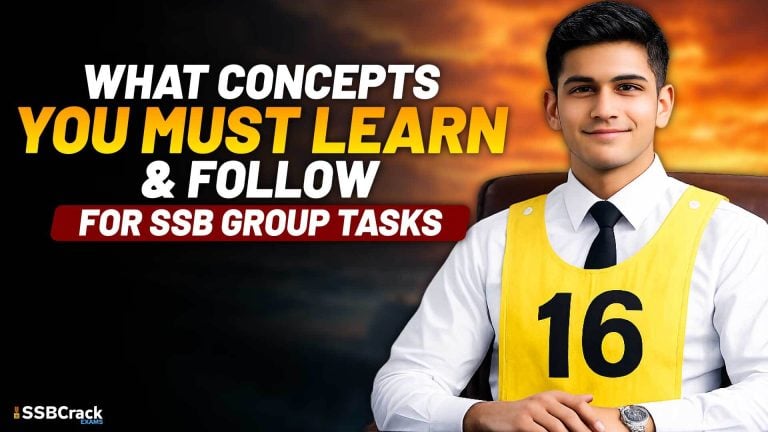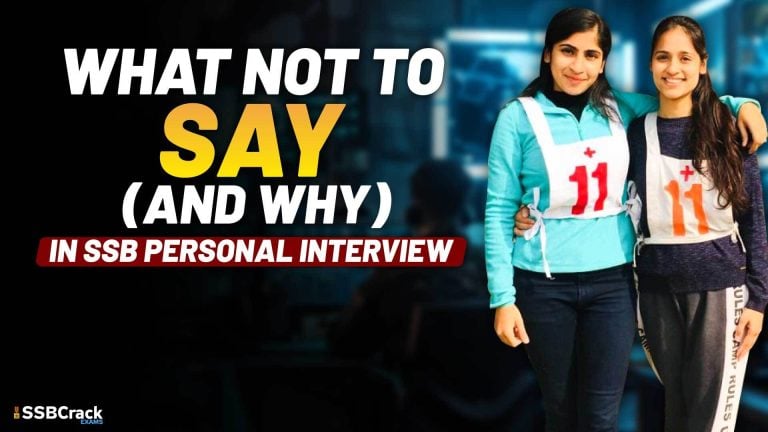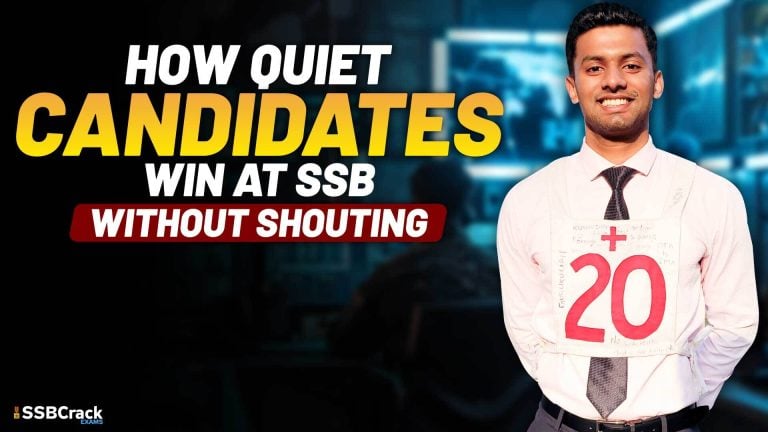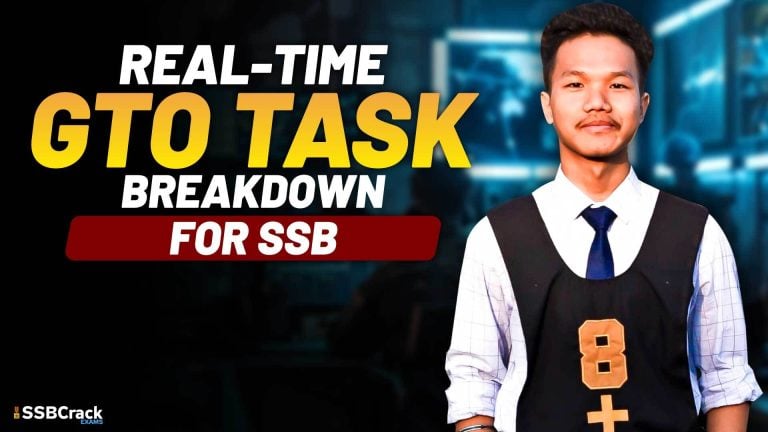Facing the SSB interview can be a daunting experience for many defense aspirants. While the process may seem casual and conversational on the surface, the trained officers conducting the interview are meticulously observing every aspect of your behavior and personality. From your eye contact to your facial expressions, the interviewers are skilled at picking up on the subtle nuances that reveal your true character.
In this comprehensive guide, we’ll delve into the 10 Things You Didn’t Know Officers Notice In SSB Interview process. By understanding these crucial elements, you can better prepare yourself to make a lasting impression and increase your chances of success.
1. Eye Contact
The first and perhaps most important aspect that officers notice is your eye contact. Maintaining steady, confident eye contact throughout the interview demonstrates your sincerity, self-assurance, and engagement with the conversation. Avoiding eye contact, on the other hand, can be interpreted as a lack of confidence or evasiveness. Ensure that you keep your gaze focused on the interviewer, conveying your attentiveness and willingness to engage.
Importance of Maintaining Eye Contact
- Signifies confidence and self-assurance
- Demonstrates your engagement and interest in the conversation
- Helps to build a rapport with the interviewer
- Reflects your honesty and sincerity
Tips for Maintaining Effective Eye Contact
- Practice making eye contact during conversations to build the habit
- Avoid looking around the room or down at your hands
- Make a conscious effort to maintain eye contact, even when the questions become more challenging
2. Confidence
Your level of confidence is another crucial factor that officers observe during the personal interview. They assess your confidence through various aspects, such as your body language, the way you enter the room, how you sit or stand, and the manner in which you respond to questions.
Indicators of Confidence
- Upright, relaxed posture
- Firm handshake and steady movements
- Clear, articulate speech
- Ability to maintain eye contact
- Willingness to express your thoughts and opinions
Strategies to Boost Confidence
- Practice self-affirmations and visualization exercises
- Prepare thoroughly for the interview by researching common questions
- Engage in mock interviews to build your comfort level
- Remind yourself of your strengths and achievements
Also Read | 6 Easy Techniques To Enhance Your Story Narration
3. Concentration and Presence
The officers closely monitor your level of concentration and presence during the interview. They may ask unexpected questions or suddenly change the topic to gauge your ability to stay focused and engaged.
Importance of Concentration and Presence
- Demonstrates your ability to stay present and attentive
- Reflects your mental agility and quick thinking
- Helps you provide thoughtful and relevant responses
Tips to Maintain Concentration
- Practice active listening and avoid getting distracted
- Take a few deep breaths before the interview to center yourself
- Avoid fidgeting or other nervous habits that can disrupt your focus
4. Posture and Body Language
Your posture and overall body language are significant indicators of your internal state and confidence level. The officers closely observe how you carry yourself, from the way you sit or stand to the positioning of your hands and legs.
Positive Body Language Cues
- Upright, relaxed posture
- Open, leaning-forward stance
- Calm, controlled hand and leg movements
- Smooth, coordinated gestures
Negative Body Language to Avoid
- Slouching or fidgeting
- Crossed arms or legs
- Excessive hand movements or nervous ticks
- Restless leg movements
Strategies to Improve Body Language
- Practice good posture and stance in front of a mirror
- Engage in power poses to boost your confidence
- Observe and mimic the body language of confident individuals
5. Facial Expressions
Your facial expressions during the interview are a window into your emotional state and thought processes. Officers pay close attention to the subtleties of your expressions, looking for signs of engagement, enthusiasm, or potential discomfort.
Importance of Facial Expressions
- Convey your emotional state and level of interest
- Reflect your ability to remain composed under pressure
- Complement your verbal responses and overall communication
Positive Facial Expressions to Cultivate
- Warm, genuine smile
- Attentive, focused gaze
- Expressive eyebrows that emphasize your words
- Relaxed, natural facial movements
Strategies to Manage Facial Expressions
- Practice in front of a mirror to become more aware of your expressions
- Engage in relaxation techniques to maintain a calm, composed demeanor
- Visualize yourself projecting a confident, enthusiastic persona
Also Read | 5 Steps to Elevate Your Physical Stamina for SSB Training
6. Communication Skills
Your communication skills, including your choice of words, sentence structure, and overall fluency, are closely evaluated by the officers. They assess your ability to express your thoughts clearly and concisely, as well as your command of the English language.
Aspects of Communication Skills
- Articulation and clarity of speech
- Appropriate use of vocabulary and grammar
- Ability to respond directly and coherently
- Fluency and lack of hesitation or filler words
Strategies to Improve Communication Skills
- Practice public speaking and engage in mock interviews
- Read extensively to expand your vocabulary
- Seek feedback from trusted sources on your communication style
- Participate in group discussions to enhance your conversational abilities
7. Handling Stressful Situations
The officers may intentionally create stressful or challenging situations during the interview to gauge your ability to remain calm and composed under pressure. They observe how you respond to these scenarios and your overall emotional resilience.
Importance of Handling Stress
- Demonstrates your ability to think clearly and make sound decisions
- Reflects your emotional intelligence and maturity
- Indicates your potential to perform well in high-stakes, high-pressure environments
Strategies for Handling Stress
- Practice relaxation techniques, such as deep breathing and meditation
- Engage in scenario-based role-playing to build your problem-solving skills
- Develop a positive, optimistic mindset to approach challenges
- Maintain a calm, collected demeanor even when faced with difficult questions
8. Temper Control
The officers also closely monitor your ability to maintain your temper and emotional composure throughout the interview. They may intentionally provoke or challenge you to assess your impulse control and emotional intelligence.
Importance of Temper Control
- Reflects your maturity and emotional stability
- Demonstrates your ability to remain professional and composed under stress
- Indicates your potential to handle the demands of military service
Strategies for Temper Control
- Practice mindfulness and self-awareness exercises
- Develop strategies for managing anger and frustration
- Rehearse responses to potential provocations or confrontations
- Maintain a calm, respectful tone even when faced with difficult questions
9. Clarity and Directness of Expression
The officers appreciate candidates who can express their thoughts and opinions in a clear, direct, and concise manner. They value individuals who can respond to questions without excessive hesitation or rambling.
Importance of Clarity and Directness
- Demonstrates your confidence and self-assurance
- Reflects your ability to communicate effectively and efficiently
- Indicates your potential to excel in a military environment that values clear and decisive communication
Strategies for Improving Clarity and Directness
- Practice articulating your thoughts and ideas in a concise manner
- Avoid excessive use of filler words or tangential responses
- Develop the habit of providing direct, to-the-point answers
- Seek feedback from others on the clarity of your communication
10. Attention and Recollection
The officers may test your attention and recollection skills by asking rapid-fire questions or revisiting previous topics. They observe your ability to listen attentively, remember the details, and provide appropriate responses.
Importance of Attention and Recollection
- Demonstrates your mental agility and cognitive abilities
- Reflects your capacity to absorb and retain information
- Indicates your potential to excel in a military environment that requires quick thinking and adaptability
Strategies for Improving Attention and Recollection
- Practice active listening techniques, such as taking notes and paraphrasing
- Engage in memory-enhancing exercises, like memorizing sequences or recalling details
- Participate in mock interviews to build your familiarity with the process
- Maintain a calm, focused demeanor to optimize your cognitive performance
Also Read | 7 Easy Ways to Enhance Your Creative Thinking
Conclusion
The SSB personal interview is a multifaceted evaluation that delves deep into your personality, character, and potential as a future officer. By understanding the 10 key factors that the officers closely observe, you can better prepare yourself to make a lasting impression and increase your chances of success.
Remember, the interview is not just a test of your knowledge or skills – it’s an opportunity for the officers to assess your overall suitability for a career in the defense services. Approach the experience with a positive mindset, a willingness to engage, and a commitment to showcasing your best self. With diligent preparation and a deep understanding of the evaluation criteria, you can confidently navigate the SSB personal interview and take a significant step toward realizing your aspirations.
FAQs
1. Is SSB one of the toughest interview?
SSB interviews are known to be among the toughest. Candidates need thorough preparation to succeed.
2. Is SSB interview hard to crack?
Clearing the SSB Interview on the first attempt can be challenging. To improve your chances, it’s essential to follow the right preparation strategy. This involves understanding the SSB Interview syllabus, practicing regularly, and reading newspapers daily to stay updated and confident throughout the process.
3. What is a good score in SSB interview?
If they determine that you are fit, they will award you enough marks to reach a total of 360 or more, combining with the previous 240 marks (as mentioned earlier). Achieving 360 marks (90×4) will give you the minimum passing score, leading to your final recommendation.
4. What are the 5 days of SSB?
Candidates aspiring to serve the nation must thoroughly understand the Service Selection Board (SSB) process and prepare themselves accordingly. The SSB selection procedure encompasses assessments of physical fitness, psychological aptitude, personality traits, and intelligence.
5. What is the full form of PPDT?
PPDT, or Picture Perception and Discussion Test, is a key component of the initial screening process for the SSB.
